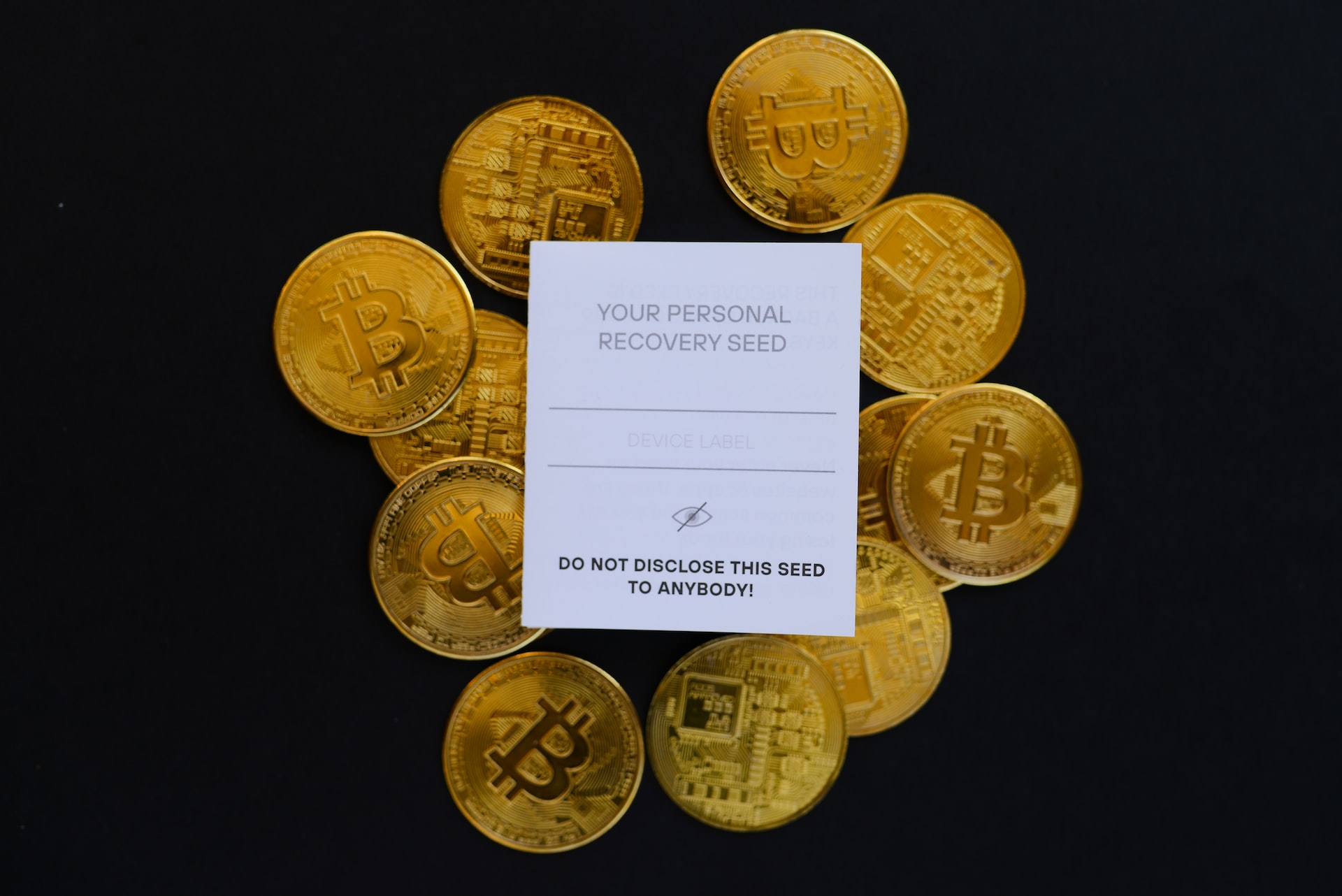A cryptocurrency is a form of digital currency that usually exists only electronically.
Cryptocurrency is typically bought using your phone, computer or a cryptocurrency ATM. Bitcoin and Ether are popular cryptocurrencies, but there are various cryptocurrencies, and new ones keep being created.
What Are Cryptocurrency Scams?
Cryptocurrency scams are similar to other types of financial scams, except that the fraudsters are after your crypto assets instead of your money.
Crypto scammers employ many of the same tactics used in other financial crimes, such as pump-and-dump schemes that entice investors to purchase an asset by making false claims about its value or outright attempts to rob your digital assets.
The goal of cryptocurrency scams is always to trick victims into disclosing personal information or transferring valuable digital assets to the perpetrator’s account, such as non-fungible tokens (NFTs).

How do people use cryptocurrency?
People utilize cryptocurrency for various reasons: quick payments, to bypass transaction fees that traditional banks charge, or because it offers some anonymity. Others keep cryptocurrency as an investment, hoping the price rises.
How do you get cryptocurrency?
You can buy cryptocurrency via an exchange, an app, a website, or a cryptocurrency ATM. Some people gain cryptocurrency by a complex process called “mining,” which necessitates solving highly complicated math puzzles by using advanced computer equipment.
Where and how do you store cryptocurrency?
Cryptocurrency is kept in a digital wallet that can be found on the internet, on your desktop, or on an external hard disk. A digital wallet has a wallet address, which usually consists of a long string of numbers and letters.
If something happens to your wallet or your cryptocurrency funds — like your online exchange platform going out of business, you sending cryptocurrency to the wrong person, you lose the password to your digital wallet, or your digital wallet being stolen or compromised — you are likely to find that no one can step in to help you recover your funds.
Interesting Facts about Cryptocurrency
- Cryptocurrencies aren’t supported by a government or central bank. Unlike most traditional currencies, like the U.S. dollar, the cost of a cryptocurrency is not tied to promises by a government or a central bank.
- You don’t have the same protections as a bank account if you keep your cryptocurrency online. Online “wallet” holdings are not secured by the government in the same way that bank deposits in the United States are.
- A cryptocurrency’s value is continuously fluctuating dramatically. An investment that seems to be worth thousands of dollars today but tomorrow it could be worth only hundreds. If the value dips, there’s no guarantee that it will rise again.
- Nothing about cryptos makes them a fairly safe bet. There are no guarantees, as with any investment opportunity.
- Nobody can guarantee you’ll gain money from your investment. Anyone who promises a guaranteed return or profit is probably scamming you. Just because the cryptocurrency is popular or has celebrities validating it doesn’t make it a good investment.
- Not every cryptocurrency or the businesses that power them are alike. Look into the promises the company is making before deciding to invest in a cryptocurrency. Do an internet search with the name of the company and the cryptocurrency and words like “review,” “scam,” or “complaint.” Skim through several pages of search results.

Types of Crypto Scams
Cryptocurrency scams are generally classified into two different groups:
- Attainment of a target’s digital wallet or verification credentials. This means that scammers attempt to obtain information that will grant them entry to a digital wallet or other kinds of private information, including security codes. In some cases, this includes physical hardware access.
- Directly transferring cryptocurrency to a scammer as a result of impersonation, fake investment or investment opportunities, or other devious means.
Here are the most common types of cryptocurrency scams in these two groups:
1. Social Engineering Scams
In social engineering scams, scammers use psychological manipulation and trick them to gain control of vital information relating to user accounts. These scams condition people to believe they are dealing with a trusted entity, like a government agency, well-known business, tech support, community member, work colleague, or friend.
Scammers will frequently work from all angles or take as much time as they need to earn the trust of a potential prey so that they reveal keys or send money to the scammer’s digital wallet. When any of these “trusted” entities desires cryptocurrency for any reason, it is a sign of a scam.
2. Romance Scams
Scammers repeatedly use dating websites to make oblivious targets believe they are in a real long-term relationship.
When trust has been granted, conversations often turn to profit-making cryptocurrency opportunities and ultimately transferring of either coins or account authentication credentials. According to the Federal Trade Commission (FTC), approximately 20 per cent of the lost income in romance scams was only in cryptocurrency.
3. Imposter and Giveaway Scams
Moving down the sphere of influence, con artists also try to impersonate celebrities, businesspeople, or cryptocurrency influencers. Many hoaxers promise to match or multiply the cryptocurrency sent to them to capture the attention of potential victims in what is known as a “giveaway scam.”
Exquisite messaging from what usually looks like an existing social media account can often build a sense of authenticity and spark a sense of urgency. This mythical “once-in-a-lifetime” chance can lead people to wire funds quickly in hopes of an immediate return.
4. Phishing Scams
Within the context of the cryptocurrency industry, phishing scams aim for information regarding online wallets.
Specifically, fraudsters are interested in crypto wallet private keys, which are the keys needed to access cryptocurrency. Their method is like many standard scams—they send an email with links that guide holders to a specially created website and ask them to enter private keys. When hackers obtain this information, they are able to steal the cryptocurrency.
5. Blackmail and Extortion Scams
Another well-known social engineering method that scammers use is to send blackmail emails. In such emails, con artists declare they have a record of adult websites or other illicit web pages visited by the user and threaten to reveal them unless they provide their private keys or send cryptocurrency to the con artists.
These cases should be reported to an enforcement agency like the FBI as they represent a criminal extortion attempt.
6. Investment or Business Opportunity Scams
The old adage “if it sounds too good to be true, it probably is” still applies, and it is one to remember for anyone starting to invest in general. It is especially true for cryptocurrencies.
Countless profit-seeking speculators turn to deceptive websites that offer so-called guaranteed returns or other schemes that require investors to invest large sums of money in order to receive even larger guaranteed returns. Unfortunately, these false protections frequently result in financial disaster when people try to withdraw their money and discover that they can’t.
7. New Crypto-Based Opportunities: ICOs and NFTs
Crypto-based investments such as initial coin offerings (ICOs) and non-fungible tokens (NFTs) have given scammers even more ways to access their money. What is crucial to know is that even though crypto-based investments or business opportunities may sound profitable, they don’t always reflect reality.
For example, some scammers design fake websites for ICOs and ask users to deposit cryptocurrency into a compromised wallet. In other cases, the ICO itself may be faulty. Founders may transfer unregulated tokens or misguide investors about the quality of their items through false advertising.
8. Rug Pulls
A rug pull happens when project members boost capital or crypto to fund a project and then suddenly remove all of the liquidity and vanish. The project is cancelled, and the investors lose everything they have invested.
9. Cloud Mining Scams
Platforms will sell to retail buyers and investors in order to entice them to put down initial capital in exchange for a continuous flow of mining power and reward.
These platforms do not truly own all the hash rates they claim to and will not give the incentives after your initial investment. While cloud mining isn’t always a scam, due diligence on the platform is required before investing.

How to Avoid crypto scams
Scammers are skilled at persuading people to hand over their money by overpromising and using flashy marketing. Listed below are some tips that will help you avoid cryptocurrency scams:
- Always be skeptical of posts on social media and celebrity advertisements promoting cryptocurrency.
- Google the token or crypto exchange name and the words “scam,” “review,” or “warning.”
- For new coins, read the whitepaper. Check for spelling errors. Look for information about the project’s participants. Search for evidence of any large partnership claims.
- Websites should be carefully read. Check the addresses and phone numbers listed. Look for spelling errors. Be wary of promises of huge instant rewards or large returns in a short time frame if you sign up now.
- Be wary of requests for cryptocurrency payment. Any legit financial services firm is unlikely to require you to pay entirely in cryptocurrency. Be cautious of any hiring manager or online long-term partner who requests cryptocurrency payment.
- Be cautious of anyone who promises “high returns” for “low-risk” crypto investments.
If you are already investing in crypto:
- Always use a private Wi-Fi network to connect to your crypto account or wallet. Hoaxers can capture information sent over public Wi-Fi.
- If a token that you did not trade appears in your wallet, never interact with it.
- Installing browser add-ons or software that connects to your cryptocurrency holdings should be done with caution. There is legitimate software that carries out this task, but there are also many scams that look real.
It is possible that the transaction is fraudulent even if you do these checks. Be alert and keep in mind that if something looks too good to be true, it probably is.

Cryptocurrency scams and how to avoid them
For many people, the mad rush into cryptocurrencies has evoked feelings of the Wild West. The crypto environment will definitely be a prime focus for scammers as it gains scale and complexity.
Cryptocurrency scams generally fall into two categories: socially engineered initiatives to gain account or security information, and receiving cryptocurrency to a compromised digital wallet by the victim.
You should be able to recognize a crypto-related scam soon and avoid having one happen to you if you recognize the usual ways that fraudsters attempt to obtain your information (and ultimately your money).

Kathy Brooks is a digital marketing specialist at IPB Digital LLC. She is a technical writer that is fascinated with all things blockchain, cryptocurrency, digital assets and web3. Follow IPB Digital LLC on LinkedIn, Facebook and Twitter.
